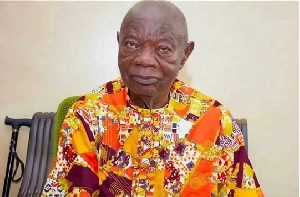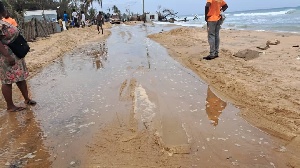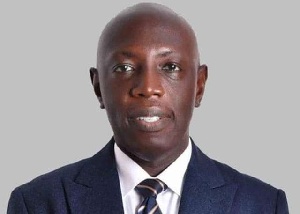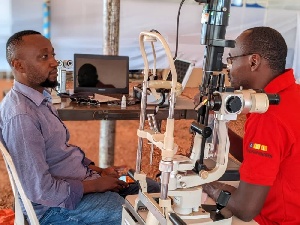- Home - News
- Elections 2024
- News Archive
- Crime & Punishment
- Politics
- Regional
- Editorial
- Health
- Ghanaians Abroad
- Tabloid
- Africa
- Religion
- Photo Archives
- Press Release
General News of Wednesday, 4 June 2025
Source: www.ghanawebbers.com
Climate Talks Dialogue moves to Keta to integrate indigenous knowledge into coastal resilience strategy
JoyNews, with the German Embassy, will host the second Climate Talks. This event aims to protect Ghana’s coastal communities. It will integrate indigenous knowledge into national climate resilience efforts.
The talks will focus on Ghana's response to coastal erosion and sea-level rise. Grassroots solutions rooted in tradition will be highlighted.
About 25% of Ghana’s population lives along its 550-kilometre coastline. The ocean is vital for their livelihoods and culture. However, the coastline is gradually receding. Communities like Keta, Salakope, and Amutsinu lose up to 17 metres of land each year. In 2021, nearly 4,000 people in Keta were displaced by severe tidal waves.
Ghana has mainly relied on engineered solutions like sea defence walls. Now, Climate Talks will emphasize grassroots approaches. Traditional ecological knowledge passed down through generations is crucial.
These practices help local communities manage land, water, and weather patterns. They are now gaining national attention.
The second edition of Climate Talks aims to change perceptions. It encourages the public and policymakers to view local communities as knowledge holders and partners in building coastal resilience.
The dialogue will take place at Keta Nursing and Midwifery Training College Conference Hall at 10:00 am on June 13th. It will be broadcast live on JoyNews, JoyPrime, and Jubilee Radio.
Community members, traditional leaders, climate experts, government officials, and the public will participate. They will share and validate indigenous techniques that help coastal communities adapt.
The dialogue aims to raise awareness about indigenous knowledge in climate planning. It also seeks to promote capacity-building for policymakers and communities. Attracting private investment into climate-resilient infrastructure is another goal.
This edition aims to ensure indigenous knowledge is included in Ghana’s National Adaptation Plan (NAP) and Nationally Determined Contributions (NDCs) under the Paris Agreement.
As climate change worsens and engineered solutions become costly, Ghana's focus on indigenous knowledge may set a model for future coastal resilience.
Entertainment










